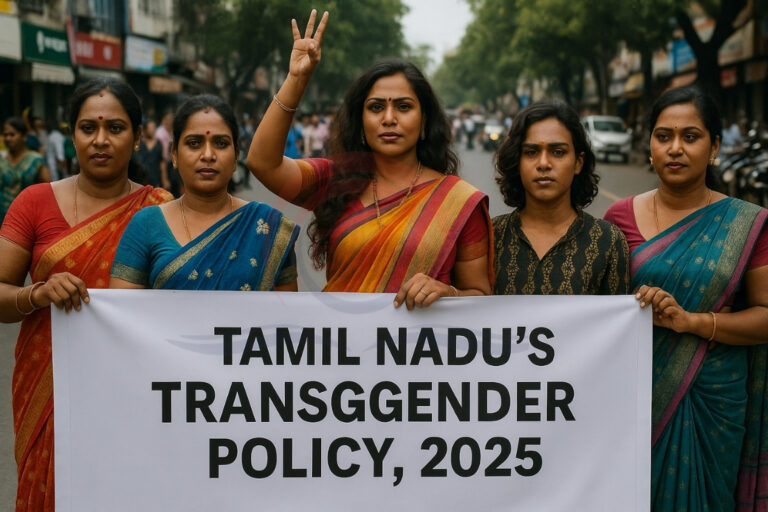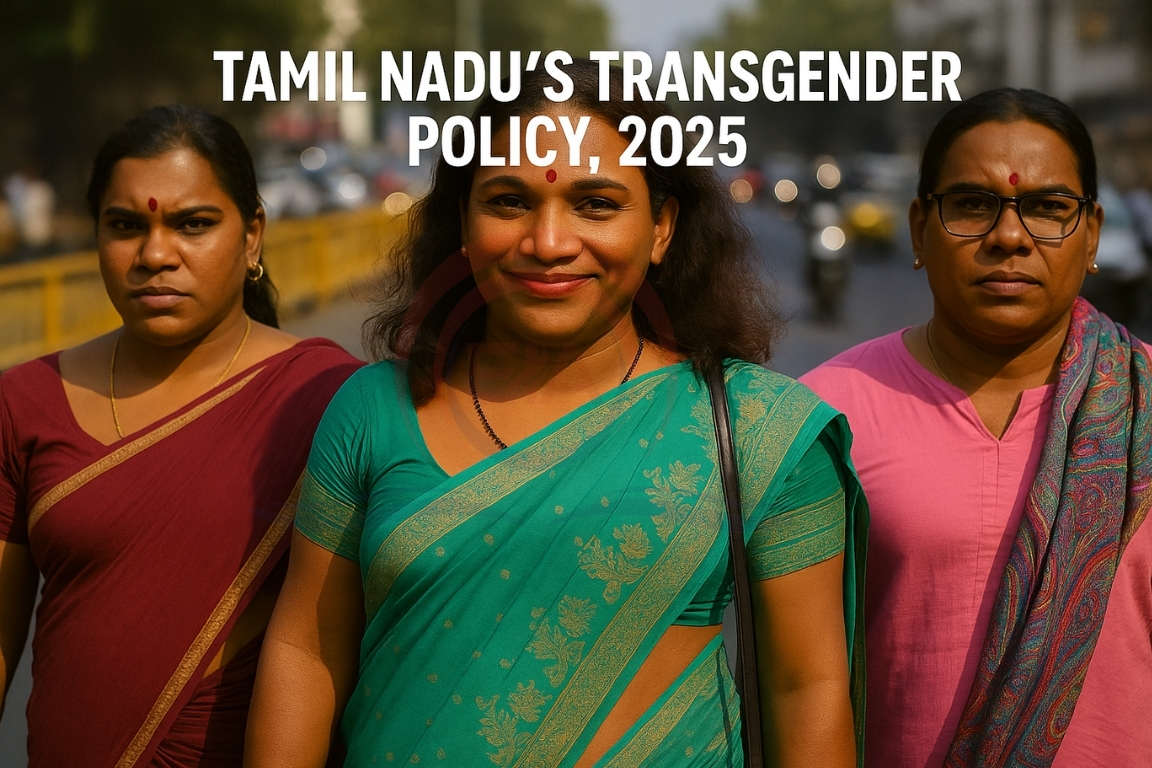Tamil Nadu has released the State Policy for Transgender Persons, 2025, which includes a proposal to amend the Hindu Succession Act, 1956 to grant equal inheritance rights to transgender and intersex persons.
Background
- Hindu Succession Act, 1956 – Governs inheritance for Hindus, Buddhists, Jains, and Sikhs.
- Current law recognises only male or female heirs, excluding non-binary transgender and intersex persons unless they legally identify as male or female.
Why the Act Needs Reform Binary Nature of the Law
- Transgender and intersex individuals often excluded from inheritance rights.
- Many face homelessness and economic insecurity due to property denial.

Constitutional Conflict
- Article 15 prohibits discrimination on grounds of sex, which includes gender identity.
- The Act’s binary structure contradicts Articles 14, 15, and 21 of the Constitution.
Judicial Position
- NALSA v. Union of India (2014) – Recognised self-identification as a third gender.
- Despite this, inheritance laws remain unchanged.
- Cases like Mafatlal (2005) show the difficulty in claiming property rights.
Global and Regional Comparisons
- Pakistan and Bangladesh have extended inheritance rights to transgender persons.
- India’s legal recognition is progressive, but personal laws lag behind in codifying these rights.
Significance of Tamil Nadu’s Initiative
- Progressive Policy Framework: Tamil Nadu’s history: First Transgender Welfare Board. First to allow “third gender” in college applications. Recognition of transgender persons as socially and educationally backward for affirmative action.
- Legal Alignment: Supports the Transgender Persons (Protection of Rights) Act, 2019 by reinforcing state-level protections.
- Human Rights and Social Justice: Promotes equality, dignity, and non-discrimination. Addresses economic vulnerability through legal inheritance rights.
- Model for Other States: Could inspire similar reforms nationwide to ensure equal rights in personal laws.
Conclusion
Tamil Nadu’s proposal to amend the Hindu Succession Act is a significant step towards legal equality and social inclusion for transgender persons. By addressing property rights, it bridges a major gap between constitutional guarantees and personal law provisions, setting a precedent for other states to follow in ensuring comprehensive rights for all gender identities.





